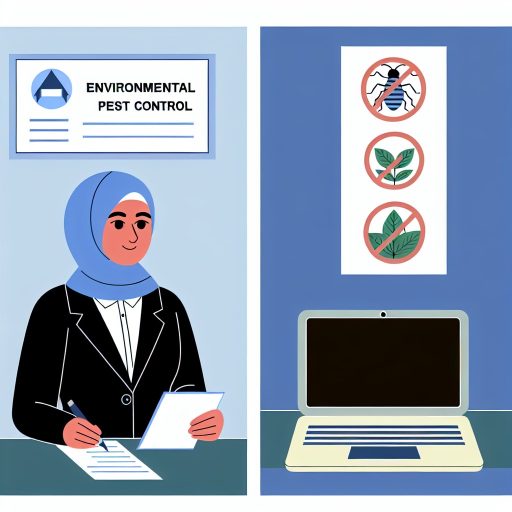Introduction
Quality control inspectors play a crucial role in ensuring that food meets high standards before it reaches consumers.
They are responsible for monitoring and evaluating the entire production process.
The goal is to guarantee that food products are safe, meet regulatory requirements, and maintain excellent quality.
Maintaining high standards in the food industry is essential to protect consumer health and well-being.
Any compromise in quality can lead to serious consequences such as foodborne illnesses and damage to a company’s reputation.
Quality control inspectors serve as a crucial line of defense against potential risks.
They help maintain the integrity of the food supply chain.
When it comes to ensuring food quality, quality control inspectors play a crucial role in the process.
They are responsible for implementing and monitoring the quality control systems in place.
These systems ensure that food products meet the required standards.
This blog post explores how quality control inspectors ensure food quality.
We begin with their training and qualifications.
Training and Qualifications
Quality control inspectors in the food industry need specific skills and qualifications.
These enable them to perform their role effectively.
Here are key requirements for individuals pursuing this role.
- Most employers require quality control inspectors to have a high school diploma or equivalent.
- Some positions require a post-secondary certificate or associate degree in a related field.
- Obtaining certification such as Certified Quality Inspector (CQI) can enhance job prospects.
- Certifications demonstrate commitment to quality and set individuals apart from other candidates.
- Quality control inspectors need specialized training in food safety and quality control procedures.
- This training equips them with knowledge and skills for ensuring food product safety and quality.
- Training programs cover topics such as hazard analysis, critical control points (HACCP), and good manufacturing practices (GMP).
- Inspectors often receive training on using specific equipment and software related to quality control.
Quality control inspectors are essential for maintaining food quality and safety standards.
Their training and qualifications enable them to perform their role effectively.
This ensures consumers receive safe and high-quality food products.
Inspection Process
When it comes to ensuring food quality, the role of quality control inspectors is crucial.
These professionals play a vital part in safeguarding the integrity and safety of the food supply chain.
Transform Your Career Today
Unlock a personalized career strategy that drives real results. Get tailored advice and a roadmap designed just for you.
Start NowThe inspection process involves several key steps that are essential in maintaining high standards of food quality.
Overview of the Steps Involved in Food Quality Inspections
- Receiving Inspection: The first step in the inspection process is to assess the quality of raw materials and ingredients as they are received.
- Processing Inspection: Once the raw materials are approved, the next step is to monitor the processing of food products.
- Testing and Analysis: Inspectors use a variety of tools and equipment to test for contaminants, such as pathogens and foreign objects, that could pose a health risk.
- Documentation and Record-Keeping: Throughout the inspection process, inspectors maintain detailed records of their findings.
Use of Tools and Equipment to Test for Contaminants and Freshness
- Microbiology Testing Kits: Inspectors use these kits to check for harmful bacteria such as E. coli and Salmonella in food samples.
- Thermometers: Temperature control is critical in maintaining food freshness.
- Metal Detectors: These devices help detect metal contaminants that may have accidentally entered food during processing.
- Visual Inspection Tools: Inspectors visually examine food products to check for signs of spoilage, discoloration, or other visual defects.
- Sensory Evaluation: Inspectors rely on their senses of taste, smell, and touch to assess overall quality and freshness of food products.
By following a systematic inspection process and utilizing appropriate tools and equipment, quality control inspectors play a critical role in upholding food quality standards.
They ensure consumer safety through their dedicated efforts and thorough inspections.
Find Out More: The Role of Biotechnology in Food Science
Compliance with Food Industry Regulations
In the food industry, compliance with regulations is a top priority for quality control inspectors.
They have the important task of ensuring that food products meet safety standards set by governing bodies.
- Understanding and implementing food safety regulations set by governing bodies.
- Quality control inspectors need a deep understanding of the regulations that govern the food industry.
- This includes regulations set by government agencies such as the Food and Drug Administration (FDA) and the Department of Agriculture.
- Regular audits and inspections to ensure adherence to standards.
- Quality control inspectors conduct regular audits and inspections to ensure food production complies with established standards.
- They check for deviations from regulations and take corrective actions to ensure compliance.
Gain More Insights: Extension Agents: Training the Next Generation
Communication with Stakeholders
- Quality control inspectors play a crucial role in ensuring food quality by communicating effectively with stakeholders.
- They collaborate with food producers, suppliers, and distributors to address quality issues.
- By maintaining open lines of communication, inspectors can better identify potential quality problems in the food supply chain.
- Regular communication helps in proactively resolving issues before they escalate, ensuring that only safe and high-quality food reaches consumers.
Collaboration with Food Producers, Suppliers, and Distributors
- Inspectors work closely with food producers to ensure that quality standards are met during the production process.
- They conduct regular inspections and audits to monitor the quality of raw materials and production practices.
- By collaborating with suppliers, inspectors can verify the authenticity and quality of the ingredients used in food products.
- Inspectors also work with distributors to ensure that proper handling and storage practices are followed to maintain food quality.
Reporting Findings and Recommendations to Management
- After conducting inspections, quality control inspectors compile detailed reports outlining their findings and recommendations.
- These reports are crucial for management to make informed decisions and implement corrective actions to address any quality issues.
- Inspectors provide clear and concise recommendations on how to improve processes and maintain food quality standards.
- By reporting their findings, inspectors help to prevent quality issues from recurring, safeguarding the reputation of the brand.
You Might Also Like: Best Practices for Agricultural Loan Underwriting

Sampling and Testing
Quality control inspectors play a crucial role in ensuring that the food we consume is safe.
They make sure products meet regulatory standards.
One key responsibility is sampling and testing food products.
This process helps assess product quality before distribution.
- Collecting samples for laboratory testing and analysis
- Monitoring and documenting results to track trends in product quality
Inspectors collect samples from different batches or production runs.
They send these samples to laboratories for detailed analysis.
The testing aims to identify potential issues such as contamination or spoilage.
They also check for possible mislabeling of products.
Once testing is complete, inspectors monitor and document the results carefully.
This documentation helps track product quality trends over time.
Identifying patterns can reveal problems in production or the supply chain.
Inspectors must be meticulous in their sampling and testing procedures.
Transform Your Career Today
Unlock a personalized career strategy that drives real results. Get tailored advice and a roadmap designed just for you.
Start NowThey provide accurate and reliable information about product quality.
By acting as the first line of defense, these inspectors protect consumers.
They ensure the food we eat meets the highest quality and safety standards.
Explore Further: How to Assess Water Quality for Irrigation Systems
One of the key responsibilities of Quality Control Inspectors in the food industry is to ensure quality through continuous improvement.
Implementing Quality Control Measures
Quality Control Inspectors play a crucial role in implementing quality control measures based on feedback and data analysis.
They collect and analyze data on product quality to identify trends and areas for improvement.
Through the use of technology and specialized tools, Inspectors track product quality at various production stages.
This approach allows them to pinpoint potential issues and take proactive measures to address them.
By monitoring production processes closely, Inspectors identify deviations from quality standards.
They take immediate corrective actions to ensure high-quality products reach consumers.
Identifying Areas for Improvement
In addition to monitoring product quality, Inspectors identify areas for improvement within the production process.
They analyze data to pinpoint root causes of quality issues.
Collaboration with production teams and other departments helps develop strategies to resolve these issues.
Corrective actions may involve redesigning processes, training employees, or upgrading equipment.
Inspectors also work closely with suppliers and vendors to ensure raw materials meet quality standards before production.
By establishing strong partnerships, Inspectors prevent quality issues before they arise.
Quality Control Inspectors’ Role in Driving Continuous Improvement
Quality Control Inspectors play a vital role in driving continuous improvement within the food industry.
They constantly monitor and evaluate quality metrics to help companies identify areas for enhancement.
These professionals implement strategies to achieve higher levels of quality.
Transform Your Career Today
Unlock a personalized career strategy that drives real results. Get tailored advice and a roadmap designed just for you.
Start NowTheir expertise and attention to detail contribute to the overall success of food companies.
Inspectors ensure products meet or exceed quality standards.
Their dedication builds trust with consumers and maintains a positive market reputation.
Role of Quality Control Inspectors in Food Safety
Quality control inspectors play a crucial role in ensuring food quality and safety.
They perform rigorous inspections to maintain high standards across the food supply chain.
Their meticulous work helps prevent contamination, spoilage, and risks to consumer health.
By upholding strict guidelines, these professionals protect public well-being effectively.
Vigilance allows inspectors to identify potential issues and address them promptly.
Consumers depend on their diligence to guarantee consistent food safety standards.
The commitment of quality control inspectors is vital for maintaining consumer satisfaction.




